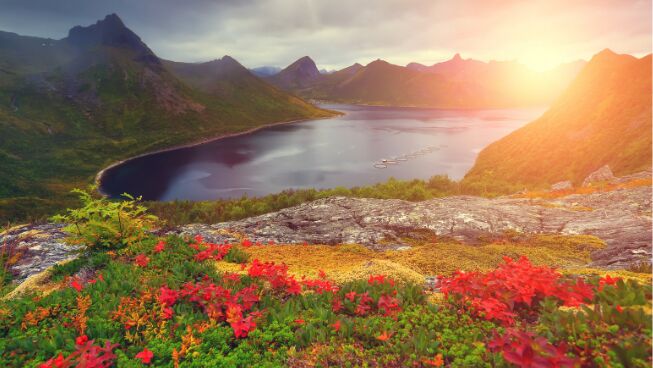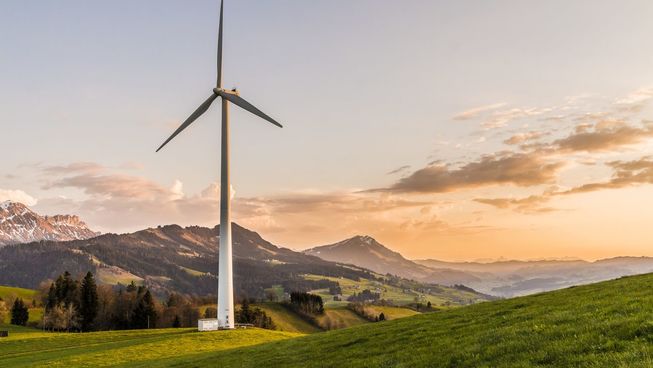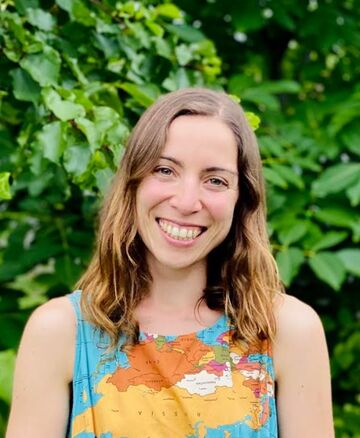The story nature tells

I’ve always found it strange—and strangely wonderful—that one person can adore a certain type of food or music, leisure or work, that another will detest; that one person can find an artwork profoundly moving, while another doesn’t even consider it “art”.
At the same time, most people seem to agree that sunsets and stars, waterfalls and mountains, forests and flowers are beautiful; or at the very least, “not yuck”.
I imagine this has always been, and will always be, the case. That even if we weren’t motivated to live more sustainably and less wastefully for the sake of our survival, the compelling beauty of the natural world would make us fear its loss.
I acknowledge that we’re not all equally motivated to preserve and protect it—competing desires for comfort and convenience often win out—but given the ability to have it both ways, it’s hard to imagine anybody choosing a world without wilderness and wildlife, without gardens, parks and nature strips, or views that still contain a bit of sky.
Survival and beauty might sound like two separate motivations for conservation, but I don’t think they are. I’d argue that natural beauty sits firmly within the category of survival: it brings pleasure, it inspires awe and wonder; it helps sustain our will to live. We might not realise quite how much unless we’re forced to live without (imagine lockdown without windows, without walks).
The Australian novelist Tim Winton has suggested that when we lose touch with creation, we lose touch with something deeper, more intangible, “divine”.
It’s one of the reasons I—as someone who believes this groaning world will ultimately be renewed, restored, made new—still laments its destruction; still wants to aid its preservation.
But there’s another reason to deem preserving the natural world of vital importance; another reason to think that the more we destroy it, the more impoverished our lives become.
It’s the conviction this world—though fallen—also speaks. It’s why theologians like David Haines see creation as God’s “other” book. Nature testifies to the existence—and majesty—of the divine.
In the words of a Davidic Psalm, “The heavens declare the wonder of God, the skies proclaim the work of his hands.” Not only that but they pour forth a kind of universal speech that, transcending language, speaks to all mankind. It’s an ancient text from ancient times. But I was reminded of it when reading a recent novel.
In Beautiful World, Where Are You, Sally Rooney, a writer hailed as “the first great millennial author”, grapples with the world’s problems—from climate change and capitalist greed to loneliness and purposelessness—via emails exchanged between two friends in their 30s.
Alice writes to Eileen about their shared conviction “that nothing matters, life is random, our sincerest feelings are reducable to chemical reactions, and no objective moral law structures the universe”.
In a world so devoid of hope, this is what she’s come to accept. But if it’s true, doesn’t it mean beauty, whether physical or otherwise (living and loving selflessly, bravely, sacrificially) is only ever trivial?
And wouldn’t that be almost as unbelievable as the fact, raised in a previous email from Eileen, that there are still people in this world who actually believe there’s a God, who actually attend church, who lift up their hearts to the Lord?
Alice says it’s “possible” to live with the conviction that nothing matters and life is random, “but not really possible, I don’t think, to believe the things that you and I say we believe. That some experiences of beauty are serious and others trivial. Or that some things are right and others wrong”.
Alice can’t really believe “the difference between right and wrong is simply a matter of taste or preference” but she also can’t bring herself to believe “in absolute morality, which is to say, in God”.
In Christian belief, beauty is far from trivial. In a letter penned more than 2000 years before Rooney’s novel, the Apostle Paul writes about how God’s invisible qualities—“his eternal power and divine nature”—have been “clearly seen” since the creation of the world. He seems to be saying the beauty in the world bears a kind of witness to the goodness, to the greatness, of God.
“I think really, if you took the natural world away from us, our ability to believe in or yearn for or want to join with the divine would be diminished,” Tim Winton told the Life and Faith podcast in a 2018 interview.
The natural world has much to teach us, but if we tie it up, tape its mouth, go indoors and close the blinds, how can it speak?
“I think once the natural world is gone, humans are going to struggle as they’ve never struggled before to have big ideas of God; because the first form of revelation is the natural world,” says Winton.
Engaging with it is a means of engaging with the divine. “And this idea that you can somehow maintain some kind of engagement or relationship with the divine through abstract thought only—you know: you sit in your room and adhere to orthodox thinking—that dog just doesn’t run.”
No man is an island. Other people and their words nourish, teach and form us—and we are nourished, taught and formed by our surroundings; by our broken but (still) beautiful world.
Whether we consider this planet a happy accident or a taste of the divine, we have many good reasons to preserve it: so that future generations might survive and thrive; so that we might keep enjoying it ourselves; so that, still drinking of its beauty, we might hear it speak.



